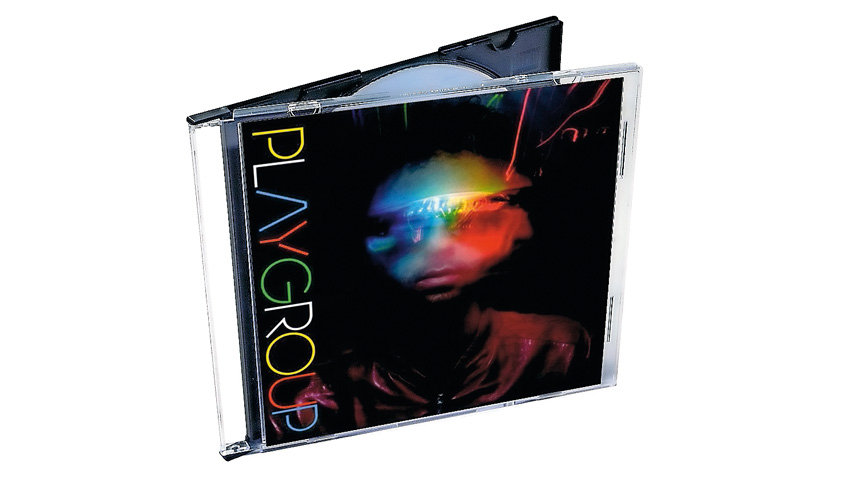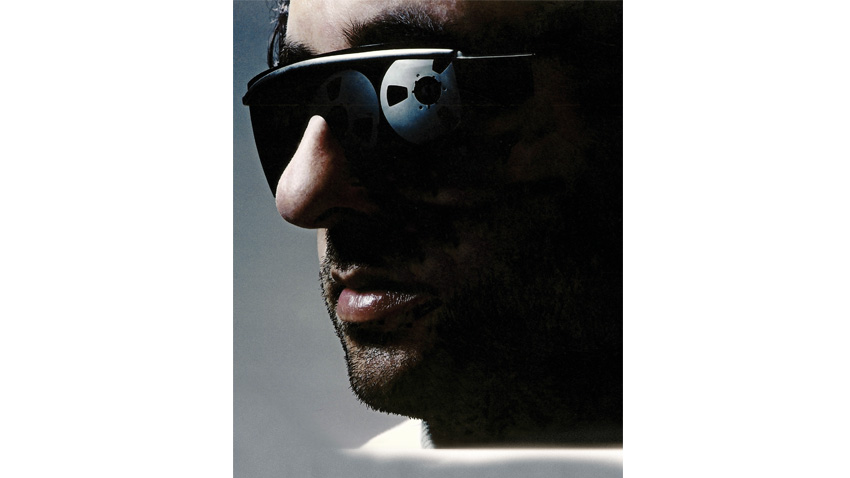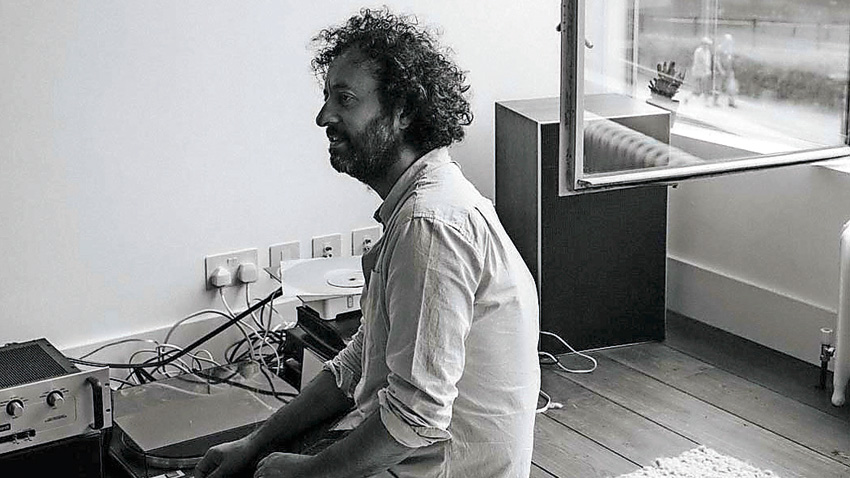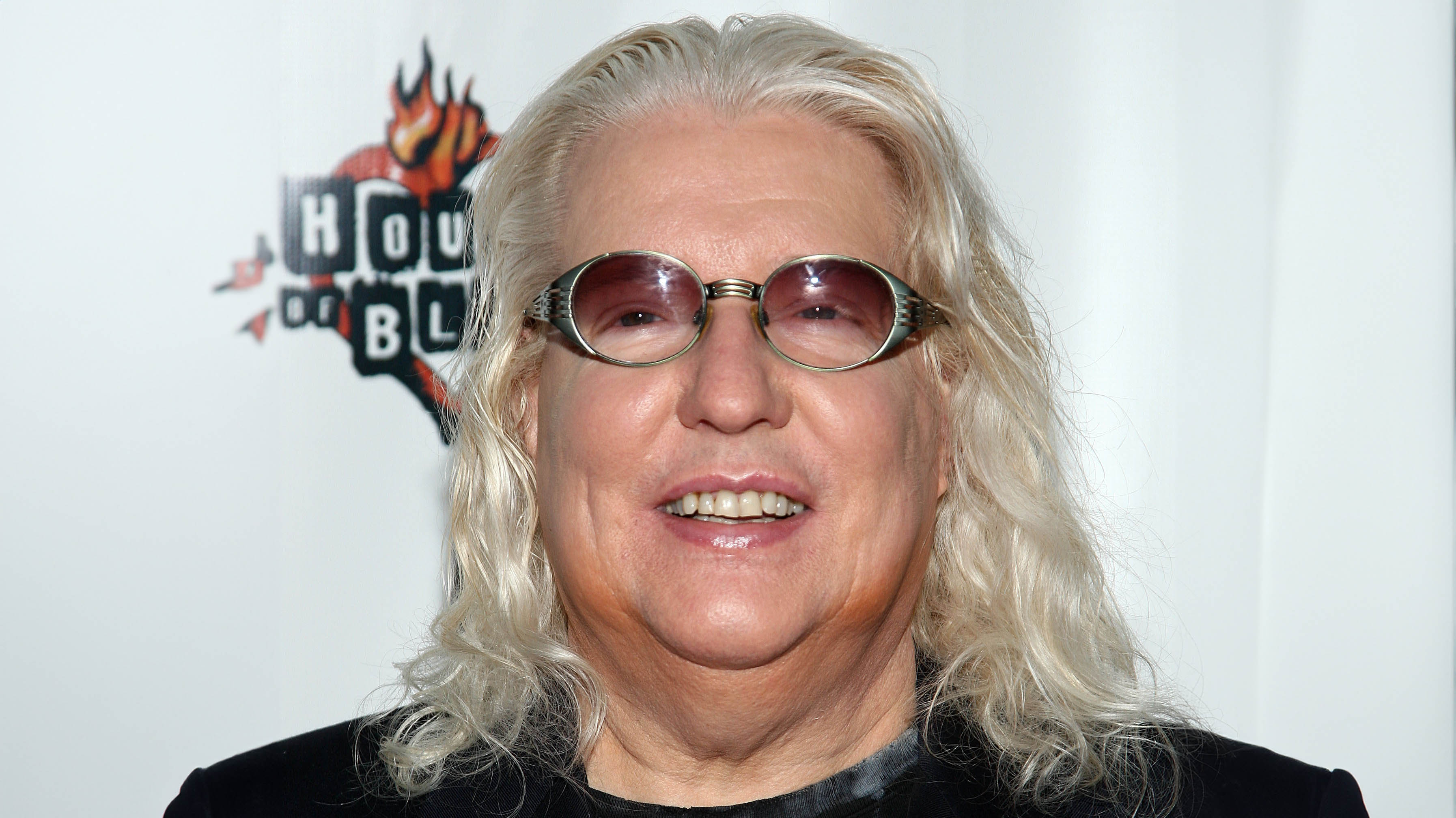Classic album: Trevor Jackson on Playgroup
Trevor Jackson tells the tale of the ultimate supergroup album

Look around. What annoys the piss out of you? Is it the fact that most music shrieks from mobile phones on night buses? Is it that everyone is rapping over Trance? Do you miss the dynamics in waveforms? Or perhaps you'd like to put every EDM artist on the planet in Wembley Stadium and blow them sky high?
Let the hate flow through you. Feed off it. Then produce some music that's the slap bang opposite. You'll feel better.
Now, look at Trevor Jackson's Playgroup project - the one-off album collective assembled by Trev to bring the fun of the 80s back to dance music at a time when it was disappearing up its own arse. As The Underdog, Jackson was twisting up intricate beats on a par with Shadow, Krush, Aphex Twin and Squarepusher. Then it all started to do his nut right in. "I was at a programming stage parallel to those guys," says Jackson. "But the music was becoming too complicated, and people were starting to show off and get darker and more intense. I needed to have fun."
For Jackson the music of the 1980s was fun squared. He grew up on the sheen of Trevor Horn, the melting pot of Malcolm McLaren, and the live dance of Tom Tom Club and Grace Jones. So he locked himself away with two Akai S950 samplers and a stack of retro wax, and started building a bank of grooves. The rough demos quickly bagged a big money deal (those were the days, right?), then it was time to assemble a band.
It started with Luke Hannam playing bass over the beats, then singer Edwyn Collins (and his contacts book) got involved. By the end, the album was peppered with legends from the Golden Era. Members of The Specials, Aztec Camera, and Matumbi joined KC Flightt, Latin Rascals, Davy DMX, and choice samples from cult 80s films and bands.
"My contemporaries were so serious," says Jackson. "I wanted the colour of that era. I wasn't being ironic whatsoever. I loved the records I was referencing, and it was important for me to bring that fun back."
Trevor Jackson takes us through the album track by track
Get the MusicRadar Newsletter
Want all the hottest music and gear news, reviews, deals, features and more, direct to your inbox? Sign up here.
Number One
"Edwyn Collins played rhythm guitar on this. He really helped this album come together, and helped recruit a lot of the other players to the project. He brought Roddy Frame in [Aztec Camera], who did the crazy guitar solo here.
"I resisted using new technologies and software as much as possible. I could have made this beat in seconds using ReCycle, but I wanted the old-school vibe of the Akai S950, chopping by ear.
"People would say to me, 'Why the fuck are you doing it that way? This can all be done automatically'. I wanted to make it by using the feel. That's how the tracks on this album came about."
Pressure
"This is inspired by Larry Levan and Gwen Guthrie. Peanut Butter is one of my favourite songs ever. I wanted to make one of those deep disco tracks, but modern too. It's probably the most modern track on the album. It's one of the few I listen back to now and, for me, it still sounds contemporary.
"I put the instrumental together and couldn't find a vocalist to work on it so just used that sample from Joi [Sunshine and the Rain]. I just stuck the vocal on the top of it and it worked perfectly.
"Edwyn Collins also played some guitar on here as well."
"I wanted to make one of those deep disco tracks, but modern too. It's probably the most modern track on the album. It's one of the few I listen back to now and, for me, it still sounds contemporary."
Front 2 Back
"This track features KC Flightt - best known for the hip-house anthem Planet E. Hip-house was always a dirty word, but I loved it. My favourite of his was Let's Get Jazzy - it's got a great cowbell I reference here.
"KC Flightt was real hip-house. He never made a hip-hop record, unlike the other guys from that scene. I didn't want a hip-hop rapper.
"I also got this guy called Peter Lockett in, who's a pretty big session musician. He pretty much played percussion on every track on the album. He's on here on that cowbell. He just nailed all the stuff I gave him.
"Ted Milton from post-punk band Blurt is on here on sax, too."
Bring It On
"The Le Tigre record had just come out and I loved Kathleen Hanna's voice, so I got in touch with her. I ended up going down to New York and we did three tracks together, one of which never ended up on the album.
"I went into a shitty little rehearsal studio with just my laptop. I remember I had to buy a little PC card thing to do the vocals.
"We did it all in about an hour. She was just what I wanted. In dance music, women are always divas, singing about shit. I wanted to have strong women on here."
Medicine Man
"Edwyn Collins again, here. We did two tracks with him with vocals in - one sadly didn't make it onto the album, where I sampled Robert Wyatt's cover of Chic's At Last I Am Free.
"Here, we went into the studio and I just let him do his thing. He did all the guitars, too. This was before he got ill [Collins suffered a cerebral haemorrhage in 2005 which severally hindered his mobility and speech]. The album came out in 2001, so I must have recorded it in 2000. It was a few years before that."

Too Much
"I was surrounded by too many people doing too much coke. Unfortunately in the music industry you have those types. I was just sick of it. This track was about that.
"I used a Scritti Politti sample and a bit of Malcolm McLaren - the line, 'Too much of this Snow White'. It's just a bit of an anti-industry cocaine dig.
"Malcolm McLaren, God rest his soul, was a greedy fucker. He wanted all of the publishing. I have the utmost respect for him, even though he tried to fuck me in business.
"Green from Scritti Politti was cool, but Malcolm McLaren was a dick. I think I gave him 100% or something stupid for a two-second sample."
Make It Happen
"If I never make another piece of music again I'm glad I made this. I mixed the original version with a guy called Al Stone at Metropolis. It was Al Stone that mixed Jamiroquai. People are going to be reading this going, 'Fuck me, I had no idea Trevor Jackson was a big Jamiroquai fan!' No one else was mixing live dance records, and that's what I needed. I worked with him on the original 12-inch version, which is the best version.
"Kyra - who did the vocals - I met through a friend. Then I got Dick Cuthell in, who played trumpet with The Specials.
"It's influenced by James White, Pigbag, ESG and Liquid Liquid."
Surface To Air
The reason this sounds so much like Ghost Town is that it has Dick Cuthell from The Specials on horns again. We wanted Rico from the band too, but I think he was ill or something. Dick was a friend of Edwyn, so he brought him in.
"I did everything for a reason. Every little sample and guest… it's not just because it sounds good. Everything has a little reference to something. To me, sampling is about paying homage to someone. It's about educating. It's not just about using someone's music and reinterpreting it, it's about teaching people stuff. I wanted people at the time to look at the sample and say, 'Who is this band?'"
Overflow
"The mix on this track is fucking awful. Plus, I'm singing on this and I hate the sound of my own voice.
"I got Rowetta from the Happy Mondays on here because I didn't want to use weak divas.
"I was never into the Happy Mondays or the Stone Roses back when they were first out; I was into hip-hop and house music. I listen to them now and I get it, with their references to Can and stuff like that.
"Rowetta is a ball-buster and a powerful English voice. You don't fuck with her. I do wish I never sang on this and just got her to sing on the whole song, though."
Fatal
"Fatal was my Grace Jones tribute track. Sola - the girl who sings on it - is sadly no longer with us. We wrote this one together. Pretty much all the tracks I co-wrote, apart from Medicine Man, which Edwyn did himself.
"When I started this album I was learning how to work with musicians for the first time. When I finished it, I pretty much stopped working with samples. It was becoming too financially and legally difficult to use them.
"After the Playgroup album, my entire studio turned analogue. I started making everything with drum machines and synths, and taught myself how to make music. The result was me not releasing any new music for the past decade."
"I was surrounded by too many people doing too much coke. Unfortunately in the music industry you have those types. I was just sick of it. This track was about that."
Hideaway
"This is me on vocals. This was my Loose Ends/Sade tribute. People think it's weird that I like Public Image Ltd as much as I like Sade. I wanted to make an electronic soul record like those guys. I recorded the vocals in the studio by myself. Lights off. Everyone out. Then I recorded it a hundred times until I got it right.
"It's a love song to someone that doesn't exist. My girlfriend at the time was furious. She thought I was having an affair! It wasn't about her or anyone that existed. She was super pissed off about it. I'm not going out with her now, but she gave me a fucking hard time about it then."
50 Ways To Leave Your Lover
"I wanted a cover version on the album, and I wanted to work with Shinehead because his cover of Billie Jean is phenomenal. I spoke to him and suggested a few tracks, and this Paul Simon track was one he knew.
"I went out to record at D&D Studios in New York, which turned out to be a shithole and the engineer was a complete wanker.
"We took the track back to Edwyn's studio, West Heath Yard, and he got Dennis Bovell from Reggae band Matumbi in, who'd also produced Orange Juice's Rip It Up. He helped me write it and played keyboards. He was also the general vibesman in the room when we made it. His contribution was pretty essential to that track."

Fourth Sex Baby
"I was a massive fan of Liquid Sky. It's a B-movie, sci-fi, New York, druggy, new wave film. It was mad, and has this amazing soundtrack done on the Fairlight by this guy called Slava Tsukerman.
"Peaches styled herself off that film. I met her in London when she was playing a gig with Gonzales to about 15 people, but they put on a show like there were a million there.
"We got talking about this film, Liquid Sky, and we all loved it. I said I had a beat sampling the theme from it and asked if they'd like to be on it. That's how Fourth Sex Baby came about."


Future Music is the number one magazine for today's producers. Packed with technique and technology we'll help you make great new music. All-access artist interviews, in-depth gear reviews, essential production tutorials and much more. Every marvellous monthly edition features reliable reviews of the latest and greatest hardware and software technology and techniques, unparalleled advice, in-depth interviews, sensational free samples and so much more to improve the experience and outcome of your music-making.
"At first the tension was unbelievable. Johnny was really cold, Dee Dee was OK but Joey was a sweetheart": The story of the Ramones' recording of Baby I Love You
"Reggae is more freeform than the blues. But more important, reggae is for everyone": Bob Marley and the Wailers' Catch a Fire, track-by-track










